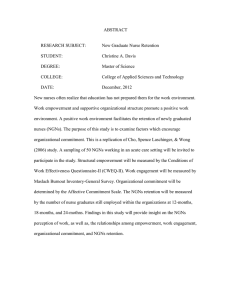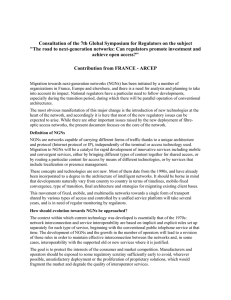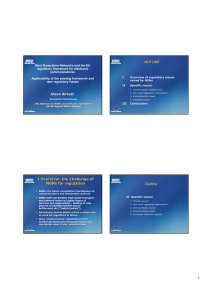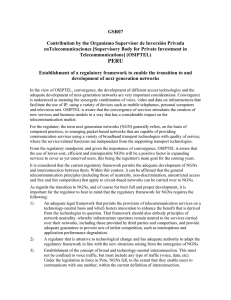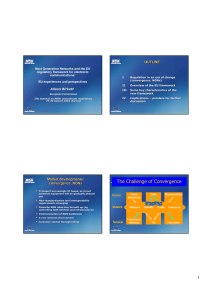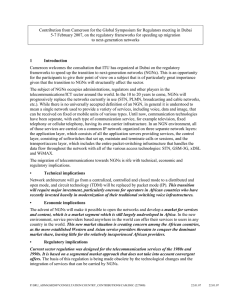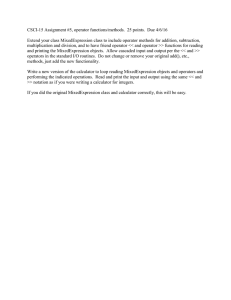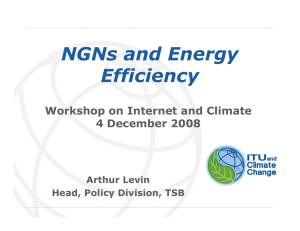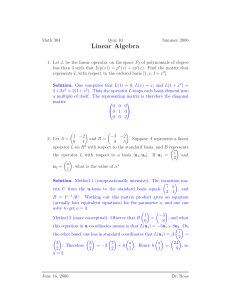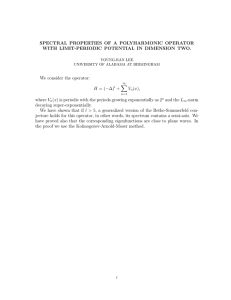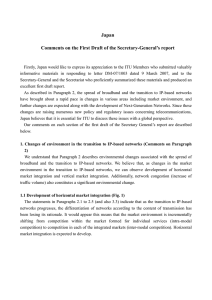Principles in regard to regulatory frameworks for Next Generation Networks (NGNS)
advertisement
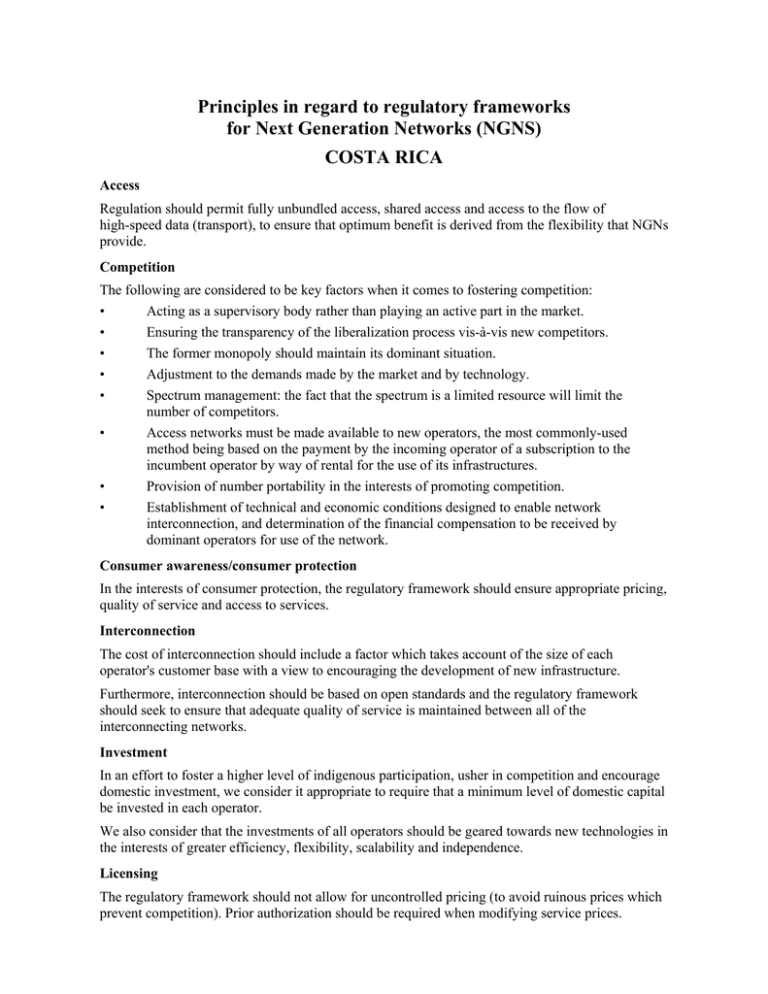
Principles in regard to regulatory frameworks for Next Generation Networks (NGNS) COSTA RICA Access Regulation should permit fully unbundled access, shared access and access to the flow of high-speed data (transport), to ensure that optimum benefit is derived from the flexibility that NGNs provide. Competition The following are considered to be key factors when it comes to fostering competition: • Acting as a supervisory body rather than playing an active part in the market. • Ensuring the transparency of the liberalization process vis-à-vis new competitors. • The former monopoly should maintain its dominant situation. • Adjustment to the demands made by the market and by technology. • Spectrum management: the fact that the spectrum is a limited resource will limit the number of competitors. • Access networks must be made available to new operators, the most commonly-used method being based on the payment by the incoming operator of a subscription to the incumbent operator by way of rental for the use of its infrastructures. • Provision of number portability in the interests of promoting competition. • Establishment of technical and economic conditions designed to enable network interconnection, and determination of the financial compensation to be received by dominant operators for use of the network. Consumer awareness/consumer protection In the interests of consumer protection, the regulatory framework should ensure appropriate pricing, quality of service and access to services. Interconnection The cost of interconnection should include a factor which takes account of the size of each operator's customer base with a view to encouraging the development of new infrastructure. Furthermore, interconnection should be based on open standards and the regulatory framework should seek to ensure that adequate quality of service is maintained between all of the interconnecting networks. Investment In an effort to foster a higher level of indigenous participation, usher in competition and encourage domestic investment, we consider it appropriate to require that a minimum level of domestic capital be invested in each operator. We also consider that the investments of all operators should be geared towards new technologies in the interests of greater efficiency, flexibility, scalability and independence. Licensing The regulatory framework should not allow for uncontrolled pricing (to avoid ruinous prices which prevent competition). Prior authorization should be required when modifying service prices. Auctions should be avoided wherever possible. In certain situations, they could have a negative effect on competition, as the amounts involved could be a source of exclusion. The granting of a licence should enable an operator to provide the full range of services made possible by NGNs: for example, a cellular operator could provide fixed services, a cable television company could provide voice services, etc. Pricing Pricing should be based on costs, with a view to fostering cost reduction through convergence: voice and data, wireless and cabled, etc. It is further recommended that the pricing of services be based on the flat-rate approach, essentially because this enables customers to have more control over their expenditure. Quality of service The factors considered to be essential in new NGNs are the regulation of traffic parameters, QoS, service availability and service survivability. The following are, broadly speaking, parameters which we consider it important to regulate: Traffic parameters Committed Data Rate (CDR)/Committed Burst Size (CBS) + Excess Burst Size (EBS) Peak Data Rate (PDR)/Peak Burst Size (PBS) QoS parameters End-to-end transfer delay/Jitter (delay variance)/Packet Loss rate, Bit/Cell error rate. • For voice services over NGNs, the existing quality of service standards for telephone networks defined in Recommendations such as ITU-T E.800, G.114, ISO 8402, ITU-T I.350 and ETSI ETR003 continue to be applicable. • In the case of IP-based NGNs, Recommendations ITU-T Y.1540/1541 apply. Service availability/service survivability Service availability, call blocking ratio/Mean Time Between Failure (MTBF)/Mean Time to Recover Failure (MTRF) Network security Network security assurances should be expressed in terms of the extent to which such security is permitted by the current technology. Universal access/service The regulatory framework should serve to foster investment in the development of new infrastructures, ensuring non-discriminatory access for all citizens. At the same time, there needs to be a reassessment of the concept of universal service in terms of the facilities that are provided by NGNs, bearing in mind that they can transparently carry voice, data and video over the same connection. The concept therefore needs to be broadened to cover other services such as Internet access and mobile telephony. ______________________________
